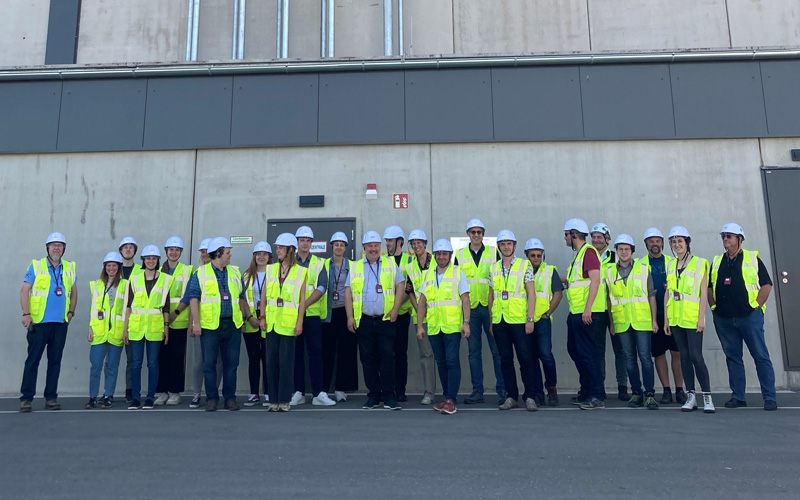Jan Krepil, BSc MSc
Researcher
jan.krepil@hcw.ac.at
+43 1 606 68 77-3483
Project duration: 1st October 2023 - 30st September 2025
Small and medium-sized enterprises (SMEs) have an increased need for training on the sustainability assessment of packaging. This is why the University of Applied Sciences Campus Vienna, together with Circular Analytics GmbH, the Austrian Institute of Ecology and ecoplus Lower Austria, developed a tailor-made training programme, which was funded as a project via the FFG qualification offensive.
The training courses in the SPICE - Sustainable Packaging in a Circular Economy project consisted of a total of 8 modules that built on each other in terms of content.
In Module 1, participants were given a comprehensive overview of the European and national legal bases in the packaging sector: from the EU Circular Economy Strategy to Austrian requirements such as the Packaging Ordinance and the Waste Management Act. Building on this, Module 2 taught the basics of holistic sustainability assessment and showed how ecological, economic and Social Work criteria can be incorporated holistically into the design of packaging. Using specific practical examples, the participants learnt how to make sustainability measurable and recognise potential for improvement.
Module 3 focussed on life cycle analysis. Using digital tools and practical exercises, the participants developed their own simplified life cycle assessments and critically reflected on the results in terms of their operational benefits. Module 4 was then dedicated to ecological packaging optimisation. In addition to an introduction to eco-design, strategies for minimising packaging and innovative solutions - such as active and intelligent packaging - were presented. Inspiring examples from the Sustainability Award 2023 and the State Prize 2024 illustrated successful implementation approaches before the participants developed their own concepts in a workshop.
Module 5 focussed on reusable solutions. The participants were given an overview of existing reusable models in Austria and discussed how functioning cycles can be established in industry and retail. Module 6 then focussed on the practical evaluation of recyclability. Real packaging was tested and analysed using the laboratory infrastructure at FH Campus Wien, giving the participants a deeper understanding of materials and sorting processes.
The following Module 7 was dedicated to the end of life of packaging. After a theoretical part on waste logistics, sorting and Design4Recycling, the participants were able to deepen their knowledge during an excursion to production and recycling companies. The insights into modern sorting technologies and recycling processes were particularly impressive and offered many ideas for optimising their own packaging systems.
Module 8, which was dedicated to digitalisation in the packaging industry, formed the final degree. It highlighted the most important drivers and challenges of digital transformation and showed how software solutions, ERP systems and artificial intelligence can be used along the entire value chain. In a concluding workshop, the participants practised digital data input and the automated assessment of recyclability - a glimpse into the future of networked, sustainable packaging development.
Head of Degree Programs Packaging Technology and, Sustainability, Sustainability Assessment and Resource Management, Sustainable Management of Resources, Sustainable Packaging Technology
silvia.apprich@hcw.ac.at
+43 1 606 68 77-3581
Senior Lecturer
bernd.brandt@hcw.ac.at
+43 1 606 68 77-3567
Deputy Head of Degree Program Sustainable Management of Resources; Senior Lecturer
werner.fruehwirth@hcw.ac.at
+43 1 606 68 77-3565
Researcher (Parental Leave)
marina.kreuzinger@hcw.ac.at
+43 1 606 68 77-3564
Deputy Head of Degree Programs Packaging Technology and Sustainability, Sustainable Packaging Technology
victoria.krauter@hcw.ac.at
+43 1 606 68 77-3592
Senior Researcher
lukas.prielinger@hcw.ac.at
+43 1 606 68 77-3496
Head of Research Center Sustainability Assessment and Packaging Solutions
bernhard.rainer@hcw.ac.at
+43 1 606 68 77-3481
